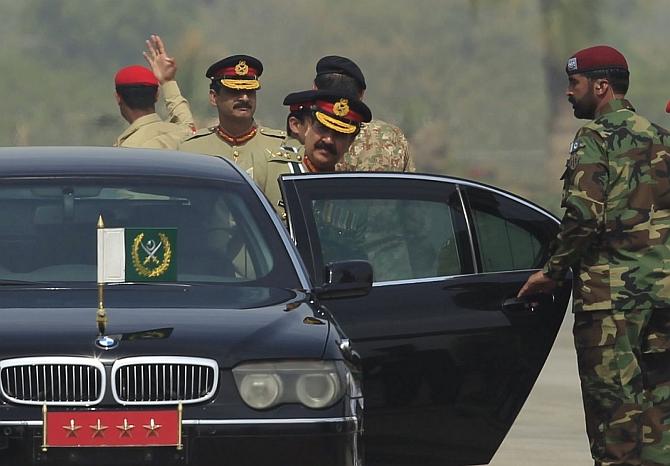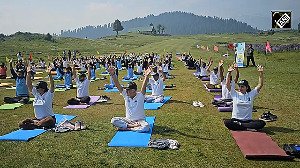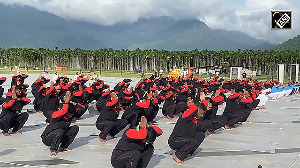Bruce Riedel, a former CIA analyst who was one of the key architects of US President Barack Obama's Af-Pak policy during his first term, has called for an offensive strategy against terrorist networks and this includes hitting out at terrorist groups inside Pakistan.

Dismantling and disrupting terror networks and their safe havens inside Pakistan should be on the agenda of the next American President, a former top CIA analyst has said, accusing the Pakistani Army of "patronising" terrorism in "other parts of the world".
President Barack Obama's decision to use drones to kill Taliban leader Mullah Akhtar Mansoor "deep inside Pakistan" should be a pointer in this regard, said Bruce Riedel, a former CIA analyst and now a senior fellow at the Brookings Institute, a top American think-tank, at a panel discussion on Afghanistan.
"Pakistan today is a unique country. It is a victim of terrorism. Unfortunately, the Pakistani Army today is a patron of terrorism in other parts of the world in particular in its immediate neighbourhood of Afghanistan," Riedel said.
In his hard-hitting remarks on Pakistan, Riedel, who was one of the key architects of Obama's Af-Pak policy during his first term, called for an offensive strategy against terrorist networks and this includes hitting out at terrorist groups inside Pakistan.
"The next President should consider striking inside Pakistan like the one against Mullah Mansoor and against other terrorist groups inside Pakistan. We should try to disrupt and dismantle the terrorist safe havens and networks and their capabilities inside Pakistan," Riedel said in his remarks at the panel discussion.
"Through its action, the new US Administration should tell the terrorist networks and its supporters that it is not going to be business as usual," he said.
Riedel also called for trying to stop Taliban's fund raising activities in the Gulf states.
He said the Pakistani passport of Mullah Mansoor showed that he travelled to Dubai 18 times and "this was for fund raising activities".
"What was the purpose of his 18 trips to Dubai -- raising funds from sympathetic groups in the Gulf states. We are not going to stop 100 per cent, but we should make it difficult for Taliban to raise funds in the Gulf states," he said.
Riedel said Pakistan today has a "thriving free press, not necessarily a responsible free press."
"We have also seen a transition from one democratic government to other democratic government. This is a milestone," he said.
"Our capability in Afghanistan has been largely defensive in the last 15 years," he said, adding that this makes things difficult because of the continued safe havens in Pakistan and "active patronage support" from the Pakistani government.
'Situation in Afghanistan is worsening'
Gen (retd) John Allen said the situation on the ground in Afghanistan is more challenging today.
"Situation on the ground in Afghanistan is challenging today. The situation has become more challenging and perhaps worsening. But this is not something which is beyond the capacity of the Afghan forces. I have confidence that the Afghan National Security Forces can pull it at this point of time," he said.
"We have seen resurgence in Afghan Taliban activities in the country. The challenges that we face going ahead is the stabilising of the number of US troops and providing air support to the Afghan troops. Securing the district. A more number of districts have gone to the Taliban," Allen said.
Addressing the panel discussion, Allen recommended increasing US air support to the Afghan forces and stabilising American troops in the country.
Noting that the security situation in Afghanistan is worsening, Vanda Felbab-Brown, a senior fellow at the Brookings Institute said the Afghan government today is cut out from the large parts of the country.
The difficult security situation in the country is not only because of the Taliban and the ISIS, but also due to crimes like kidnapping in Afghanistan.
"This has impounded a deep sense of insecurity and fear in everyday life," she said.
"We are at a moment of interesting and challenging situation in Afghanistan," Falbab-Brown said.
IMAGE: Pakistani Army Chief of Staff General Raheel Sharif leaves after attending the Pakistan Day parade in Islamabad. Photograph: Reuters











